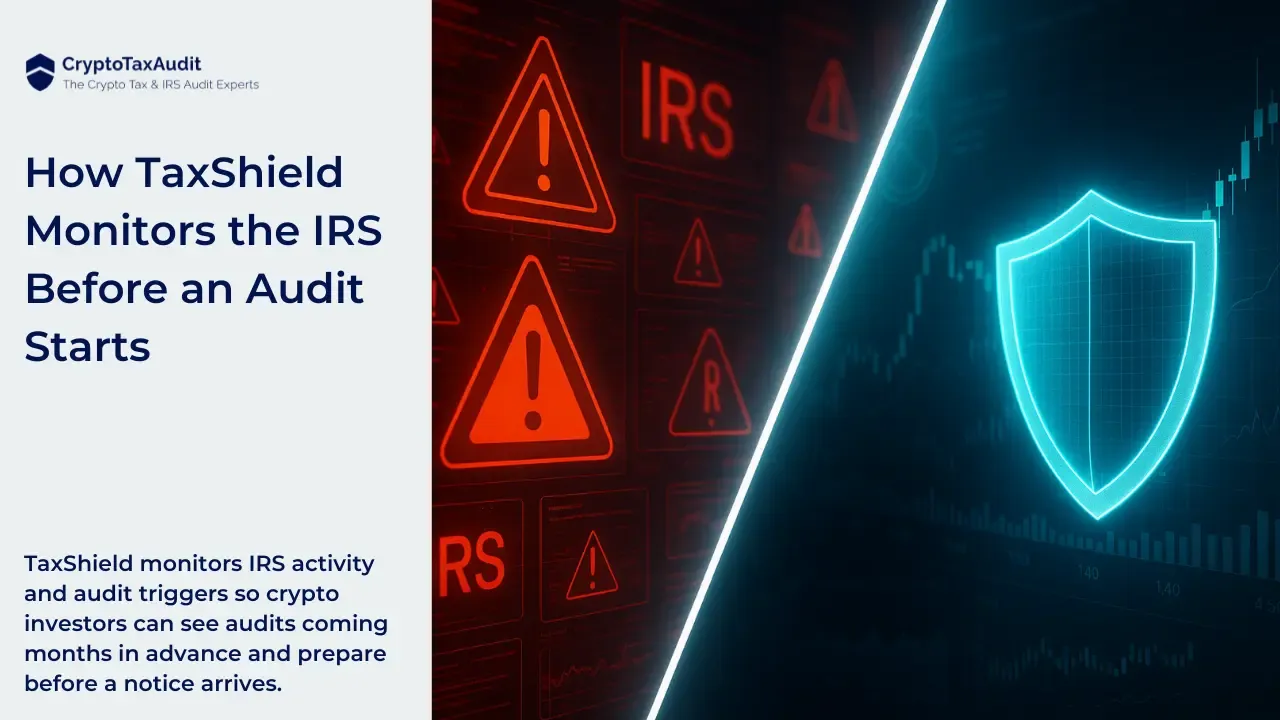
Crypto Traders and Investors: You’re Now Required to Keep Your Own Records.
Key Takeaways:
-
As of 2024, the IRS says it’s your responsibility to keep full crypto trading records.
-
The new broker-dealer regulations mean Form 1099-DA won’t cover you completely.
-
If you don’t maintain your own records, you could be hit with audits or penalties.
-
Wallet-to-wallet transfers? Yes — they might be taxed if not documented properly.
If you’re active in crypto, whether you’re a trader moving assets daily or an investor sitting on long-term positions, you just got promoted.
Not by choice, but by regulation.
Thanks to new broker-dealer rules that kicked in during 2024, the IRS has made one thing crystal clear: the burden of recordkeeping is now entirely on you.
And if you can’t prove your crypto trades, transfers, or cost basis? You’re going to have a bad time in an audit.
This isn’t just a paperwork issue—it’s a liability.
The IRS Now Expects You to Be Your Own Bookkeeper
Under IRS Code Section 6001, taxpayers are obligated to maintain “adequate books and records” to support what's on their tax return.
But until now, that expectation has been murky in the crypto space.
That’s changed.
With the rollout of the new 1099-DA reporting requirements, the IRS is shifting its enforcement posture.
Going forward, if you can’t produce documentation for your trades, transfers, or internal wallet movements—you’re on your own.
The IRS isn’t going to help you reconstruct the data. They’ll assume you’re wrong, and you’ll have to prove otherwise.
Why Crypto Recordkeeping Is a Minefield
Let’s be real: crypto traders and investors aren’t lazy—they’re overloaded.
- You’ve got dozens of wallets.
- Exchanges shut down, change APIs, or vanish overnight.
- Peer-to-peer trades? Good luck getting a paper trail.
- The blockchain might be public, but it’s not user-friendly when the IRS wants documentation.
Even if your transactions are visible on-chain, that doesn’t count unless you’ve got context—timestamps, counterparty info, fiat value at the time, and proof of internal transfers.
And if you can’t prove that a wallet-to-wallet move was just you moving funds, the IRS may call it a taxable event.
2025 Will Be a Wake-Up Call
Most crypto traders and investors are sleepwalking into a regulatory buzzsaw.
The IRS is upgrading its enforcement tools, and they’re losing patience with incomplete or messy records. Audits are no longer “let’s work together and sort this out.
” They’re becoming: Show me your documents—or pay up.
Here’s the brutal truth:
If your records are missing, inconsistent, or incomplete, your audit risk just skyrocketed.
Treat Your Records Like Your Coins
You wouldn’t leave your private keys on a dead exchange server. So don’t leave your transaction history there either.
Here’s what you should do right now:
✅ Download and archive your exchange history annually
Save your CSVs, PDFs, or API exports at least once a year. Exchanges can go down—your data shouldn’t.
✅ Track internal transfers
Make a note of every wallet-to-wallet move. Screenshot it, log it, tag it. You’ll thank yourself during an audit.
✅ Document the cost basis for every purchase
You’re responsible for proving what you paid. If you can’t, the IRS may assume your cost basis is zero, leaving you taxed on 100% of your proceeds.
✅ Use tools—but don’t trust them blindly
Tracking software is helpful, but don’t rely on it to be perfect. Errors happen. Garbage in, garbage out.
Why is CryptoTaxAudit different from Koinly, CoinTracking, or TokenTax?
Most platforms like Koinly, CoinTracking, and TokenTax offer automated tax summaries — but they leave the hard work up to you when things get messy.
CryptoTaxAudit is different because:
-
✅ We calculate your crypto gains and losses for you — not just generate a report.
-
✅ We provide full U.S. tax preparation, not just crypto-only help.
-
✅ Our Enrolled Agents defend clients against IRS letters like 6173, 6174-A, CP2000, and audits.
-
✅ We handle complex cases, including missing data, internal transfers, wallets across exchanges, and offshore reporting.
We're the only firm that combines crypto calculation, tax filing, and audit defense — all in one service.
Need Help Cleaning Up Your Records?
At CryptoTaxAudit, we specialize in fixing messy crypto transaction histories and making them IRS-proof.
Whether you’ve got gaps in your data, missing exchange records, or need help documenting peer-to-peer trades, we know how to get it done.
And if the IRS ever comes knocking?
We don’t just calculate—we defend.
🔒 Protect your gains. Back up your records. Get audit-ready.
Start now at CryptoTaxAudit.com —whether you're trading daily or HODLing for the long game.
Related Articles: IRS Letters 6173, 6174, 6174-A Explained: Essential Info for Crypto Traders and Investors
FAQ: Crypto Recordkeeping & IRS Compliance
Q: Do I still need to keep records if I use Koinly, CoinTracking, or another tax tool?
A: Yes. Even if you use crypto tax software, you're legally responsible for your records under Section 6001 of the IRS Code.
Most tools can’t perfectly track wallet-to-wallet transfers or missing transaction history — and the IRS won’t reconstruct it for you.
Q: Is the IRS really enforcing this with crypto traders and investors?
A: Yes, you are legally responsible for maintaining your own records under Section 6001 of the IRS Code, even with crypto tax software like Koinly or CoinTracking. These tools often struggle to track wallet-to-wallet transfers or missing transaction history accurately, and the IRS will not reconstruct these for you.
Q: What if I already filed my crypto taxes without complete records?
A: Consider amending your return before the IRS identifies discrepancies, especially with 2025 enforcement trends intensifying. CryptoTaxAudit has assisted hundreds of clients in reconstructing trades and correcting prior-year filings to avoid penalties.
Q: How long should I keep crypto records?
A: Keep records for at least 3-6 years, per IRS guidelines updated in 2025, to cover audit periods.





